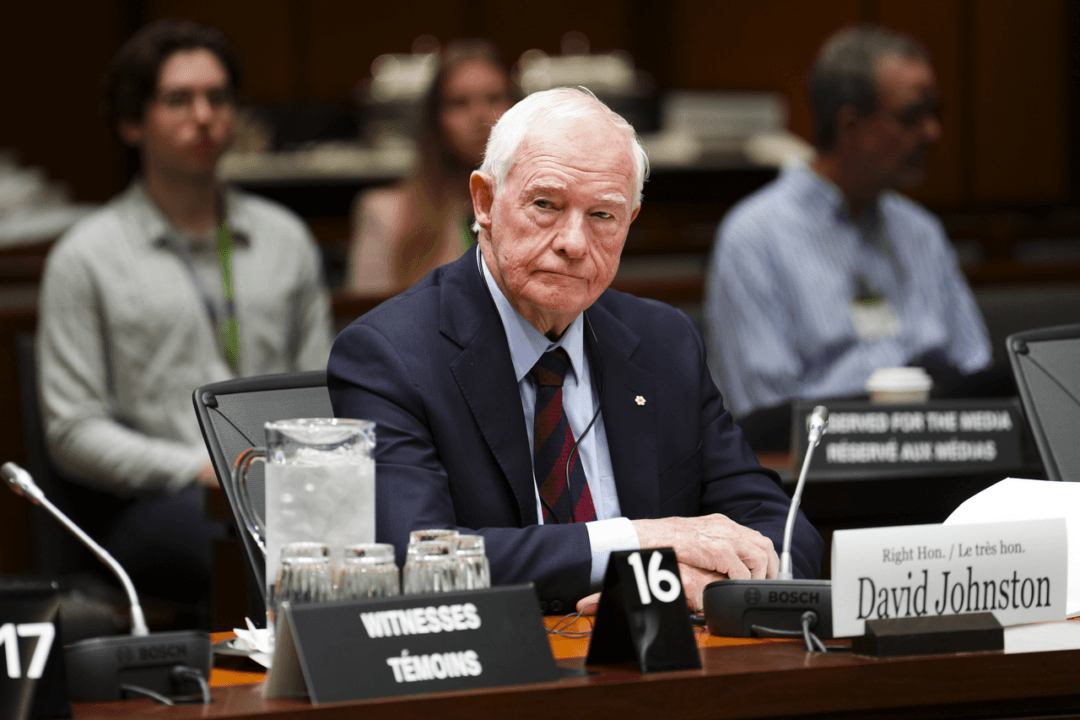Former governor general David Johnston says he will resign from his role as special rapporteur on foreign interference because of the “highly partisan atmosphere” around his appointment.
“I am therefore tendering my resignation, effective no later than the end of June 2023, or as soon as I deliver a brief final report, which I hope to be earlier,” Johnston said in a letter to Prime Minister Justin Trudeau on June 9.





